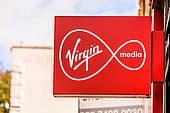Home > Broadband > News > BT apologise with universal broadband promise
BT apologise with universal broadband promise
BT have assured the Government that they will achieve the universal service obligation (USO) of 10Mb themselves, without the need for an industry-wide levy or public funding.

Their assurance comes at a time when the Digital Economy Bill is being debated in Parliament, and when they've just had an ad banned by the Advertising Standards Agency (ASA) for making "misleading" claims about broadband speeds.
As such, their promise to achieve the USO - as well as to bring superfast broadband to 97-8% of the UK - can be seen as a tactic intended to soften the Government's stance on their future.
The Government are weighing up this future via the Digital Economy Bill, which in its final form will end up deciding whether or not Openreach will be structurally separated from BT.
However, as the ASA decision shows, BT's claims don't always match the truth, so it's possible their USO pledge is simply a way of preventing such a separation from occurring.
Misleading ads
As for the ASA decision, the advertising regulator concluded this week that a trio of ads run by BT in April of this year "were misleading and had breached" the Broadcast Committee of Advertising Practice (BCAP) code.
In particular, BT ran a television ad featuring Canadian actor Ryan Reynolds, who claimed that customers could enjoy "the fastest fibre speeds as standard" with the BT Infinity package.
According to BT, all they meant by this claim was that the package offered faster speeds than other entry-level packages offered by the other major broadband providers.
Unfortunately, Virgin Media took issue with the commercials, believing that "the ads implied that BT's up to 52 Mb service was the fastest maximum speed for [any] lowest-priced tier available in the UK".
ASA duly launched an investigation, which ultimately ended with them upholding Virgin's complaint.
In concluding, they affirmed that the claim made by BT in the ads "was very broad and would be understood as a whole-of-market comparison".
And since BT's up-to-52Mb Infinity service doesn't even come close to offering the same speeds as some entry-level packages sold by smaller providers, the ad regulator prohibited the ads (not that they're running anymore).
This has left BT in something of an embarrassing situation, if only because the number of broadband ads banned by the ASA has generally been declining in recent years.
Misleading broadband?
Is Virgin best for Netflix?
The 'up to' debate
Lower prices for poor speeds?
But more seriously, it could be argued that the misleading nature of the commercials is emblematic of how BT isn't entirely upfront when it comes to the state of the broadband they provide the UK.
For example, it could be held that their claims of bringing "fibre broadband" to 86% of UK premises are also somewhat misleading insofar as most of these premises receive fibre-to-the-cabinet (FTTC) broadband.
As opposed to fibre-to-the-premises (FTTP), FTTC works by running fibre-optic cables to neighbourhood cabinets. From these cabinets, copper wires are then run to individual homes, meaning that the homes themselves don't receive a "pure" fibre-optic service.
Normally, FTTP broadband hit maximum speeds of 1Gb, whereas FTTC can manage just below 80Mb at best.
This is why BT's self-congratulatory fanfare over providing fibre-optic broadband to the UK public doesn't provide the whole truth, much like their banned ad.
And it's also why, when they defend themselves and Openreach from separation, their arguments aren't in fact quite as powerful as they'd like people to think.
Politics
Still, if the holes in their defence are perhaps a little larger than it first seems, BT seem now to be trying to work around this by pledging to achieve the USO all by themselves.
Their Managing Director of Strategy, Sean Williams, made this pledge to the House of Commons Public Bill Committee.
It's instructive to note that the Committee were consulting on the Digital Economy Bill, and that as part of this consultation they were also speaking with senior figures from TalkTalk, Three, Sky and Vodafone.
All of these figures repeated their companies' calls for Openreach to be structurally separated from BT, something which clearly prodded BT and Sean Williams into making commitments on improving the nation's broadband.
They promised to achieve the USO without any further public funding or industry levy, meaning that they would have to ensure that the entire UK could access broadband speeds of at least 10Mb by 2020.
Added to this, Mr Williams also vowed that BT would provide superfast speeds of at least 24MB to 97% or 98% of the country by the same year.
Given that the average UK broadband speed is currently 14.9Mb[PDF], this is quite an ambitious target.
However, for BT's rivals, their USO commitments weren't enough, with many complaining that 10Mb would be an obsolete speed by 2020.
These rivals therefore took the opportunity to repeat their call for Openreach to be structurally separated from BT, believing that this would make for greater competition, greater investment and ultimately greater speeds
In light of how the Government have revealed that they are considering this option, there's a very live possibility that it might happen.
Then again, since BT have showed themselves to be very receptive to political pressure, there's a chance that the Government might prefer having tighter control over something for which they could later gain votes.
Get insider tips and the latest offers in our newsletter

We are independent of all of the products and services we compare.

We order our comparison tables by price or feature and never by referral revenue.

We donate at least 5% of our profits to charity, and we aim to be climate positive.
Latest News

1 July 2025
NOW Hub Two router support coming to an end
30 June 2025
Sky offers £100 voucher with Glass TV
26 June 2025
Virgin Media moves to 24-month contractsGet insider tips and the latest offers in our newsletter

